RENTRÉE LITTÉRAIRE ACTES SUD &
maisons associées

August September 2024
TABLE OF CONTENTS
ACTES SUD
Fiction
Muriel Barbery, Thomas Helder
Jérôme Ferrari, Nord Sentinelle
Claudie Gallay, Les Jardins de Torcello
Mathieu Larnaudie, Trash Vortex
Fabrice Melquiot, Écouter les sirènes
Isabelle Pandazopoulos, Les Sept Maisons d’Anna Freud
Non fiction
Justine Augier, Personne morale
Kaoutar Harchi, Ainsi l’animal et nous
Sébastien Lapaque, Échec et mat au paradis
GAÏA
Julien Bouissoux, L’Été au Jary
INCULTE
Daniel Fohr, Vies sauvages
ROUERGUE
Colin Niel, Wallace
Anne-Sophie Kalbfleisch, Eureka dans la nuit

RENTRÉE FRANÇAISE
Muriel Barbery Thomas Helder
Novel
(August 2024)
Châteauvieux-sur-l’Aubrac - a residence in the middle of the countryside, flattered by the evening lights and that special clarity that comes with snow. The Dutch writer Thomas Helder has just died in his prime. Once the service is over, family and friends gather at the house of his mother’s family where he used to spend his summer holidays as a child and to which he had returned to die like his friend Jean before him.
At the centre of the gathering is Jean’s sister and Thomas’s oldest confidant, Margaux. A renowned French architect, she disappeared overnight many years ago, without so much as by your leave, and had remained completely absent until this wake.
But now she is once again present, installed in an armchair amid all these people she knows so well. Thomas’s friends and family are gathered affectionately around her, despite her desertion and unacknowledged betrayal of them.
And over the course of the evening, a remarkable dialogue unfolds between her and them, and especially with Jorg, the brother of the deceased who for reasons that gradually become clear speaks to her of a strange and sacred place in the Netherlands – a cabin on the northern coast. At the very boundaries of reality, an unprecedented intimacy arises through this extended conversation in which appearances finally give way to transparency.
13,5 × 22,3 / 128 pages
Thomas Helder is Muriel Barbery’s seventh novel, and the third to have been published by Actes Sud after Une rose seule (2020) and Une heure de ferveur (2022).
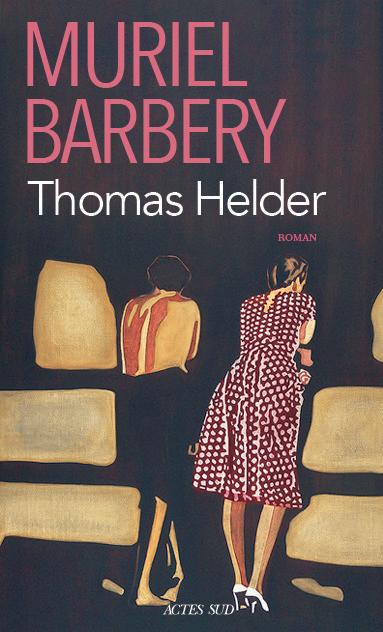 ©
Boyan
Topaloff
© Marianne Tessier
©
Boyan
Topaloff
© Marianne Tessier
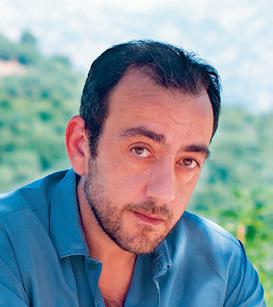
RENTRÉE FRANÇAISE
Jérôme Ferrari
Nord Sentinelle
Contes de l’indigène et du voyageur
Novel (August)
[North Sentinel. Tales of the Native and the Traveller]
Over a simple bottle of wine smuggled into his restaurant, the young Alexandre Romani stabs Alban Genevey in the middle of a crowd of tourists at a Corsican port. Alban, a 23-year-old medical student whose parents own a second home on the island, has known his attacker since they were children.
Taking this episode as his starting point, the narrator, who is close to Alexandre’s parents, retraces the life stories of the various protagonists, as if travelling up a river and its tributaries, and a picture begins to emerge of a dynasty of also-rans contaminated by a violent streak that they have elevated into a virtue.
It is a tragicomic tale told in lively and sometimes caustic prose by Jérôme Ferrari, who revisits one of his central themes – violence –and engages in an extended reflection on the links between exploration, colonisation and tourism. And on what it is that corrupts the land and the heart as soon as people set foot on a new shore.
13,5 × 22,3 / 144 pages
Jérôme Ferrari teaches philosophy in Corsica. He won the Prix Goncourt in 2012 for Le Sermon sur la chute de Rome, and his entire oeuvre is published by Actes Sud. His previous novel, À son image, won the Prix Le Monde and the Prix Méditerranée in 2018.


RENTRÉE FRANÇAISE
Claudie Gallay
Les Jardins de Torcello
Novel (August)
[The Torcello Gardens]
Jess, a young French woman based in Venice, is a tourist guide who spends her time exploring every nook and cranny of the city and unearthing the myriad of stories that it contains. But one day, the son of Mrs Barnes, Pietro, who has been lending her an apartment in the city centre, decides to sell up, and so she is suddenly faced with prospect of finding a new place fast in a city besieged by tourists and rich foreigners.
Pietro puts her in touch with Maxence Darsène, one of the leading criminal lawyers in the region, who lives on the island of Torcello in a house that is somewhat crumbling but full of old-fashioned charm. Maxence entrusts her with the task of filing all the paperwork from his big cases, and it is not long before Jess becomes fascinated with this man – like everyone else in his orbit, not least his exuberant partner Colin. The relationship between the two men is both passionate and tumultuous. And then there is the taciturn watchman Elio, with a mysterious and apparently eventful past. He is never far away and seems willing to do anything for the lawyer. Together they embark on major works to protect the gardens around the house from the rising water levels, and they also replant some ancestral vines.
Les Jardins de Torcello is a homage to the lagoons and insubmersible beauty of Venice, in which Claudie Gallay conjures up in an unadorned but intensely poetic prose the ghosts of a past that is difficult to let go of.
13,5 × 22,3 / 304 pages
Claudie Gallay has published a dozen novels with Le Rouergue and Actes Sud, including Seule Venise (2004), Les Déferlantes (2008, Grand Prix of the readers of Elle magazine), Une part de ciel (2013, Prix Terre de France), La Beauté des jours (2017), Avant l’été (2021) and Victor (2022).

©
Matsas / Leextra / Actes Sud
Philippe
© Marc Melki

RENTRÉE FRANÇAISE
Mathieu Larnaudie
Trash Vortex
Novel (August)
They have got everything they wanted, having twisted the world until it complied with their desires, and now they rule as its undisputed masters. They are the ruling caste, in both the political and business worlds, but they too have to contend with a planet that is dying and with the doomladen future that they have done so much to bring about. Some are cashing in their assets, while others are building luxury, self-sufficient bunkers that they believe will ensure their survival.
For her part, Eugénie Valier, the ageing heiress of a major industrial group, is resigned to an imminent death as civilisation as we know it comes to an end. She decides to dismantle the empire her father built up, thereby disinheriting her son, and to invest her entire fortune in a foundation devoted to cleaning up the oceans and removing the vast swathes of plastic known as the Trash Vortex. This apparently virtuous endeavour, which she herself acknowledges will not suffice to ward off the ecological disaster that is unfolding, is in fact a full-scale liquidation of her wealth, motivated in part by an unspoken desire for revenge against her family.
14,5 × 24 / 432 pages
Mathieu Larnaudie is a writer and publisher. He has also published with Actes Sud Les Effondrés (2010), Acharnement (2012) and Notre désir est sans remède (2015).
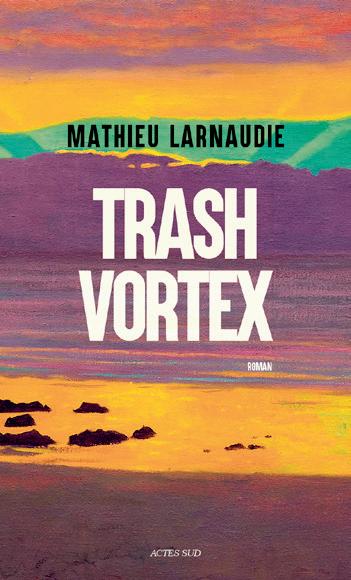

RENTRÉE FRANÇAISE
Fabrice Melquiot
Écouter les sirènes
Novel (August)
[Listening to the Sirens]
This story imagines the Suzanne who inspired one of Leonard Cohen’s most famous songs having a child. Jodie Casterman lives in Portland, a city in Oregon where weirdos are welcome. A dog-sitter, waitress and occasional actress, she is doing her best to hustle a living in the America of 2016 as Trump rises to the fore.
But her life is turned upside down when her slowly dying adoptive father John, a dancer and her mother’s best friend, reveals to her the truth about her birth and Billy Diablilis – her biological father, who has become a rich businessman.
Having already turned thirty, Jodie suddenly has to contend with a new version of herself, prompting her to rethink her life. Leaving Portland, she heads out on the road to Los Angeles and ultimately to Ludlow, Colorado, drinking too much vodka, swallowing sleeping pills to make the American nights bearable, passing a theatre audition, and making love with a hallucination – all in an effort to finally take control of her own life.
A debut novel by a multi-award-winning playwright, Écouter les sirènes recounts in hard-hitting prose the private odyssey of a woman who sets out on the roads of the American West in search of herself.
13,5 × 22,3 / 256 pages
Fabrice Melquiot is a writer, lyricist, theatre director and performer. He has published some sixty plays as well as graphic novels and poetry collections. The artistic director of Cosmogama, a creative workshop specialising in multidisciplinary artistic projects, he also enjoys the status of artist-in-residence at various state-subsidised national and regional theatres.

DEBUT NOVEL
D. R.
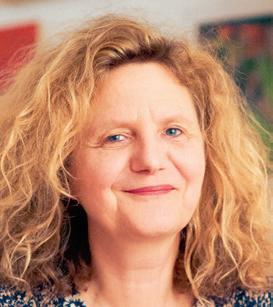
RENTRÉE FRANÇAISE
Isabelle Pandazopoulos
Les Sept Maisons d’Anna Freud
Novel (August)
[The Seven Houses of Anna Freud]
One winter’s evening in London in 1946, a nurse rings at the door of the Freuds’ house. Anna, the daughter of the renowned psychoanalyst, is close to death. Feverish and exhausted, she shares with this stranger a series of intimate memories, including of her difficult adolescence, replete with frustrated desires and shameful fantasies, the years of analysis with her father, and her decisive encounter with the larger-than-life Lou AndreasSalomé. She is by turns the unloved one, the ugly duckling, and the lastborn of the litter who struggled so hard to make herself heard while at the same time keeping her love affair with an American woman secret. She also founded a school in Vienna where, as a pioneer of psychoanalysis for children, she incorporated psychoanalytic theory into teaching. Anna Freud was an anti-heroine who resolutely carved out her own path in life and provided a refuge for vulnerable children.
Told with wonderful verve, Les Sept Maisons d’Anna Freud is the deeply moving story of an emancipation and a daughter’s unbridled love for her father, as well as the saga of a family caught up in the torments of war and exile.
13,5 × 22,3 / 368 pages
Isabelle Pandazopoulos is the author of six novels for teenagers published by Gallimard Jeunesse and Rageot, having previously taught literature to children who were struggling at school or who had mental disabilities. She now devotes her time to writing and running creative writing workshops.
 © @arthurlacomblez
© @arthurlacomblez

[Legally
RENTRÉE FRANÇAISE
Justine Augier
Personne morale
Narrative (September)
Responsible
]
This book tells the story of how a case was patiently built against the cement manufacturer Lafarge – one of France’s flagship industrial companies – for financing terrorist organisations, endangering the lives of others, and complicity in crimes against humanity in Syria between 2012 and 2014. Justine Augier documents the unflagging efforts of a small group of young female lawyers, jurists and sometimes even simple interns to uphold the principle of justice, devoting their intellectual capacities to rendering the concept of criminal responsibility tangible and placing faith in the power of language.
Over the course of many years, never losing sight of the victims whose fate their former employer had wilfully disregarded, and in the face of resources deployed by their opponent that far outstripped their own, they pooled their creative resources and marshalled their data to elaborate legal arguments that could bring an end to impunity. Their unprecedented strategy consisted of rendering accountable a ‘legal fiction’ – the notion of a company as a personne morale, a ‘juridical person’ distinct from its actual directors – as a means of combating a system where the obsession with profit, the shirking of personal responsibility and an ‘anything goes’ attitude can facilitate the unthinkable.
Justine Augier gives the protagonists a voice, highlighting the uneven balance of power and the indefatigable commitment of one camp, in contrast to the sheer indifference of the other. An engrossing search for the truth and those cracks in the system through which that truth may one day emerge, it is also a gripping tale that reveals the dark side of capitalism and will leave the reader in a state of stunned disbelief.
13,5 × 22,3 / 304 pages
With Actes Sud, Justine Augier has published Jérusalem (2013), Les Idées noires (2015), De l’ardeur (2017, Prix Renaudot for best essay), Par une espèce de miracle (2021) and Croire, Sur les pouvoirs de la littérature (2023, Prix de L’Héroïne of Madame Figaro magazine).
 © Marc Melki
© Marc Melki
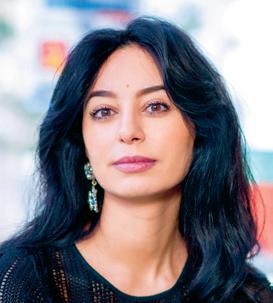
RENTRÉE FRANÇAISE
Kaoutar Harchi
Ainsi l’animal et nous
Essay (September)
[The Animal Within]
This carefully argued and personal essay begins with the question of humans’ mistreatment of animals since the dawn of time. And from that starting point, Kaoutar Harchi retraces the history of the West in a decidedly political vein, exploring religious rites, eating habits and the balance of power in society, and in particular the way women are insulted, including by being compared to dogs (‘bitches’). In parallel, she describes the progress made by Europe’s first feminists and turns her attention to factories, where numerous women worked: the first production lines (including for food) created an unprecedented system of human illtreatment, with the working class bearing the brunt of ever more demanding production schedules. The class struggle was just beginning. The author then moves on to examine the violence of colonisation and racism. What are human beings capable of doing to each other, and what is this process of bestialisation that haunts the major wars and many a daily tragedy? What is the role of capitalism in the increasingly harsh treatment of migrants, who have come to Europe at its own request to bolster the labour force? And what of the Second World War and the Holocaust? Of the attempts to eliminate the Palestinians since 1948? Of the Algerian War of Independence and those who perpetrated torture during it? And of France’s ever more stubborn silence with regard to these tragic events of the 20th century.
13,5 × 22,3 / 336 pages
Born in 1987, Kaoutar Harchi is a sociologist, novelist and essayist. Her work attracts a great deal of attention in the media as it addresses subjects that are at the forefront of current debates in French society.
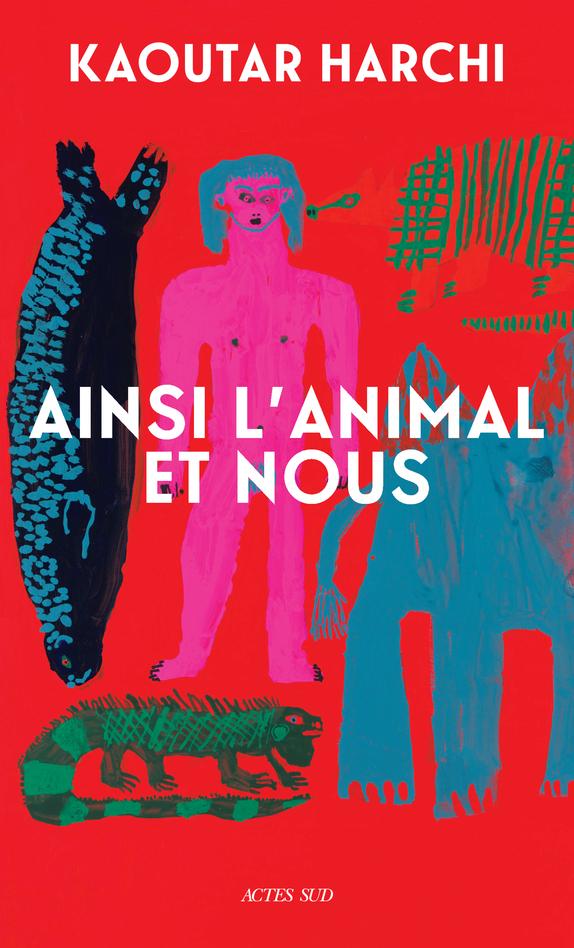 © Emmanuelle Le Grand
© Emmanuelle Le Grand
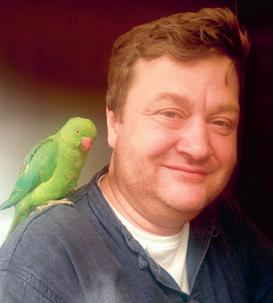
RENTRÉE FRANÇAISE
Sébastien Lapaque
Échec et mat au paradis
Narrative (September)
[Checkmate in Paradise]
This wonderfully luminous book is a highly personal investigation into the suicide of Stefan Zweig in Petrópolis in Brazil on 23 February 1942, shortly after he visited Georges Bernanos at his farm in Barbacena. It is based on over 25 years of research, travel and encounters, and is structured around a conversation that Sébastien Lapaque has imagined between these two giants of 20th-century literature: the godless Jew and the emancipated Catholic, the worldly but sensitive explorer of the torments of the soul and the wellgrounded but rebel visionary. The contrast couldn’t be starker between the sunniness of the climes and the darkness of the times, as the Nazis lay waste to the Old Continent and fascism spreads to tropical latitudes.
Lapaque approaches the question of suicide with a bold tenacity, but also with tenderness and respect, setting it in the context of fleeing the Nazi horror, the impossibility of finding a true refuge from it, and the implacable erosion of faith in the future and desire. There is a personal but also a political dimension to this suicide. And though the dialogue imagined in Échec et mat au paradis is situated in a particular place and time, its implicit and pressing relevance to the present day will not be lost on the attentive reader. This is a fascinating political and literary tale whose poignant meditations on the temptation of despair are as gripping as a whistle-blower’s inside story.
13,5 × 22,3 / 304 pages
The winner of the Prix François Mauriac from the Académie Française for Les Idées heureuses (Actes Sud, 1999) and the Prix Goncourt for best short story collection for Mythologie française (Actes Sud, 2002), Sébastien Lapaque received the Prix Jean Freustié for his last novel, Ce monde est tellement beau (Actes Sud, 2022).
A discerning critic of the oeuvre of Georges Bernanos, he has devoted several books to the author (including Georges Bernanos, encore une fois and Sous le soleil de l’exil, Georges Bernanos au Brésil, 1938-1945) as well as a number of prefaces.
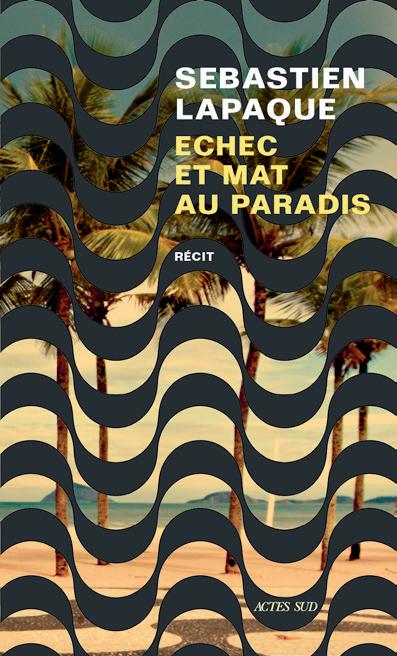 © C. L.
© 2014, AdS, M. F. Schorro
© C. L.
© 2014, AdS, M. F. Schorro

Julien Bouissoux L’Été au Jary
Novel (August)
[A Summer in Le Jary]
"I saw those first few days as an opportunity to be seized. And then something happened. I experienced a series of little epiphanies once I longer had to get up early in the morning to go to work. You don’t appreciate just how much rest you need in life. How much time off, doing nothing."
L’Été au Jary is the story of a world-weary man – a teacher who can’t find it in himself to mourn his recently deceased father and who develops a fortuitous taste for indolence and inactivity after going on sick leave.
It is also a retrospective examination of a friendship between this "sardonic, passive, totally uninterested" man and the new priest, who arrives in the village on tiptoe, shrouded in mystery, at the beginning of the high season, just when the blue skies of Le Jary are screaming the absence of God.
14 × 22 / 176 pages
Julien Bouissoux is a scriptwriter and novelist. Having previously published seven books with Le Rouergue, L’Olivier and L’Âge d’Homme, this is his first collaboration with Gaïa.
In 2023, he co-wrote the screenplay for L’Amour du monde, the first Swiss film by Jenna Hasse, which was based on the eponymous novel by Charles-Ferdinand Ramuz.
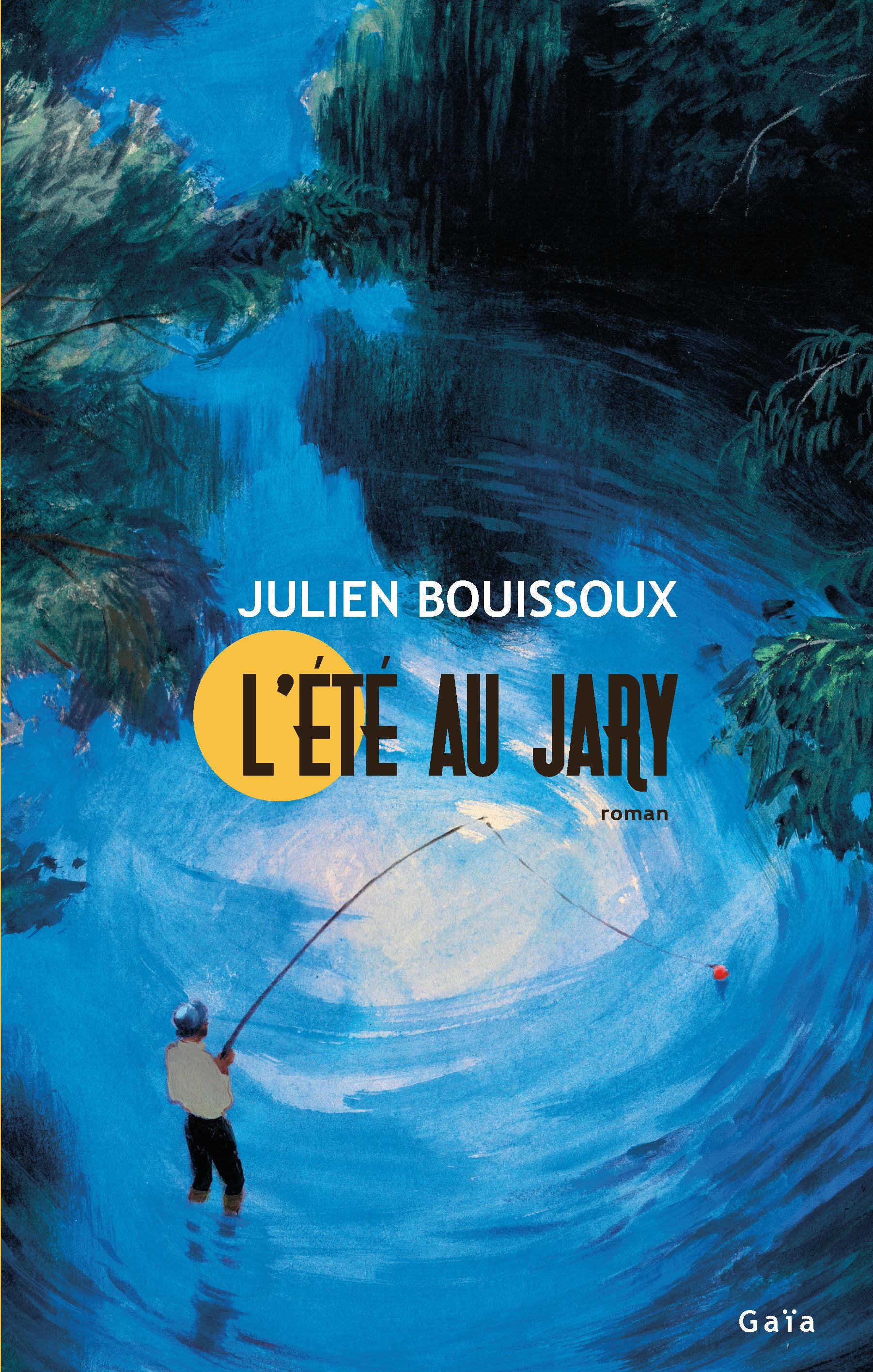

[Wild Lives]
Daniel Fohr
Vies sauvages
Novel (August)
A zoo is a village just like any other – pretty much, anyway. Its diverse range of inhabitants have their particular habits, secret dreams, memories, regrets and loves. There are of course constraints on their freedom, and fortunately there are a few humans on hand to ensure peace and harmony in the community, including the guy at the ticket office, a vet, the animal keeper and the director. One day Jad-bal-ja, the Barbary lion, is taken aback to see one of the rare human visitors climbing into his enclosure! The alert is immediately sounded. While the staff are desperately trying to resolve this explosive situation, other dramas begin to unfold: an activist opens the snake cage, the alpha baboon Darwin realises his reign is coming to an end, the marabou couple Romeo and Juliet dream of flying away, Bruce the puma spots a shrew in his enclosure, and a tropical bird starts patiently loosening the bolts of his birdcage.
Vies sauvages is a well-researched and deftly told story (rather than a fable) that immerses us in the private lives of animals under close surveillance, painting striking portraits of these creatures who supposedly lack consciousness without ever falling into the trap of anthropomorphism. It is a funny, touching and poignant novel that keeps us in a constant state of suspense: will the humans or the animals have the last word?
14 × 19 / 192 pages
A former teacher, journalist, copywriter and creative director, Daniel Fohr has in recent years devoted himself exclusively to writing. He is the author of several books, including Un mort par page (Laffont, 2010), L’Éclair silencieux du Catacumbo (Laffont, 2014), Retour à Buenos Aires (Slatkine&Cie, 2018), and more recently La Vague qui vient (Inculte, 2023).
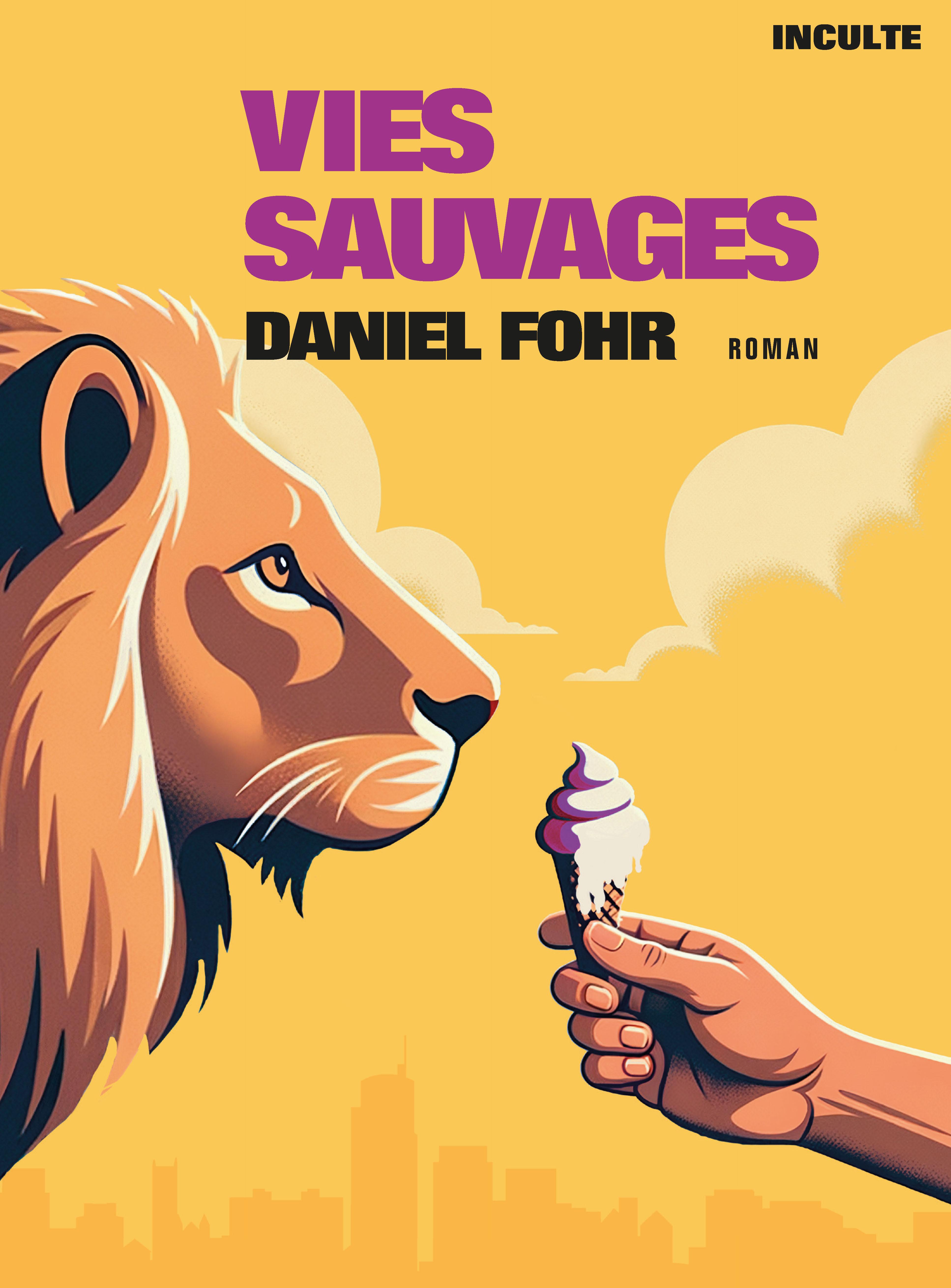
INCULTE
D. R.


Colin Niel
Wallace Novel (August)
Mathurine works in child protection. She is also a single mother bringing up her 9-year-old son Wallace in French Guiana on the edge of the Amazon basin. But as Wallace grows up, the relationship between mother and son becomes increasingly tense. She had dreamt of a child who loved the forest, but he prefers spending hours on his Switch. Already deeply affected by the tragic death of a teenager placed with a foster family, Mathurine is further shaken when the dead girl’s father, Tiburce, shares with her a strange experience in the forest, where he saw a sort of apparition. This revives in her the memory of a child she knew once upon a time whose death she could never bring herself to accept.
With this latest novel, Colin Niel immerses us in the remarkable primeval forest of this overseas department of France, spinning a fascinating yarn on the theme of parenthood. In this jungle of anxieties but also enchantment, father and daughter and mother and son endure terrible ordeals when one of them goes missing. But isn’t love supposed to give us the strength to surmount even our darkest nightmares?
14 × 20,5 / 336 pages
The author of eight novels and winner of a series of prestigious literary awards, Colin Niel has won over a very broad readership with his fiction, whose naturalism, powerful sense of place, and singular settings have helped to set him apart from his contemporaries. His novel Seules les bêtes (2017) has been successfully adapted for the cinema by Dominik Moll. All of his books are published by Rouergue.
 ©
Jody
Amiet
©
Jody
Amiet


[Eureka at Night]
Anne-Sophie Kalbfleisch
Eureka dans la nuit
Novel (August)
When the detective knocks on the door of the tiny house where Ellie has taken refuge, the time has come to tell her story. The love for May. May’s departure a year and a half ago, harpooned so to speak by her dreams of whales, which took her far away from Eureka, this pious town surrounded by gigantic cornfields. The need to raise a lot of money, and also to devise a plan. Gradually there emerges the portrait of a childhood dominated by a violent disciplinarian of a father and the big local landowners, the Meyers. As Ellie desperately tries to find a way to leave herself in pursuit of May, she realises she is treading in the footsteps of her mother, whose ghost is suddenly conjured up. With one truth unlocking another, Ellie discovers what is really haunting Eureka – the things that people don’t speak of and only dare to express through the words of the bible. And above all she finds out what really happened to the fragile and scandal-provoking Eleanor, who refused to submit to the status quo.
In this impressively assured and beautifully written debut novel, AnneSophie Kalbfleisch tells the story of the coming of age of the enigmatic Ellie and the fiery May, and of their bid for freedom.
14 × 20,5 / 384 pages
Born in Brussels in 1988, Anne-Sophie Kalbfleisch is a physics teacher. She played the role of a commander in a simulation of a Mars mission in the Utah desert, and the experience provided the inspiration for this story set in the heart of America that explores all its ambiguities and inequalities. In 2015, she won the Prix du Jeune Écrivain (young writer prize) for her short story Un ours, et d’autres évidences.

© DR DEBUT NOVEL
ACTES SUD
Le Méjan, place Nina-Berberova 13200 Arles
France
FOREIGN RIGHTS
Nathalie Alliel +33 4 90 49 33 75 nathalie.alliel@actes-sud.fr
Fabien Meffre +33 4 90 49 33 70 f.meffre@actes-sud.fr



 ©
Boyan
Topaloff
© Marianne Tessier
©
Boyan
Topaloff
© Marianne Tessier









 © @arthurlacomblez
© @arthurlacomblez

 © Marc Melki
© Marc Melki

 © Emmanuelle Le Grand
© Emmanuelle Le Grand

 © C. L.
© 2014, AdS, M. F. Schorro
© C. L.
© 2014, AdS, M. F. Schorro






 ©
Jody
Amiet
©
Jody
Amiet

